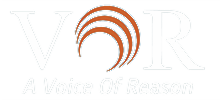Community Services Checklist
VOR supports individual and family choice. For some individuals, an ICF/MR setting best serves that person's specialized and intense needs. For others, a community setting is desired and more appropriate.
Individuals and families who are considering a transition to community placement must be educated about all community-based options. Any transition should occur only with the approval of the family and guardian, and only after a period of intense scrutiny of available community options.
Families and guardians have many things to consider when evaluating competing choices. Every person viewing a program sees different areas of importance and priority that determine whether that program and provider are acceptable or unacceptable. It is a very personal choice.
To aid in that process, a “Community Check List” document has been prepared that contains many questions to ask of potential providers, and things to look for.
Credits: The Community Check List was first developed by Polly Spare, the past President of VOR. PROOF, a VOR affiliate in Kentucky, with the help of Anne Montgomery and the Council on Mental Retardation (Section 6), provided updates.


